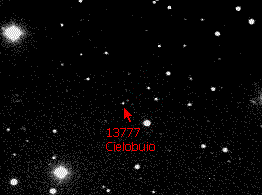Alla XXVII Assemblea Generale dell’International Astronomical Union (IAU) tenutasi a Rio de Janeiro è stata approvata la risoluzione B5: Defence of the night sky and the right to starlight. La proposta arrivava da Richard J. Wainscoat, presidente commissione 50 che si occupa della protezione dei siti degli osservatori esistenti e potenziali.
La risoluzione afferma che un cielo notturno non inquinato che permetta la contemplazione del firmamento deve essere considerato un diritto socio-culturale e ambientale fondamentale e che il progressivo degrado del cielo notturno deve essere considerato una perdita fondamentale. Il controllo della luce artificiale deve essere un elemento basilare delle politiche di conservazione della natura, visti gli effetti dannosi sull’Uomo, gli animali, gli habitat, gli ecosistemi e i paesaggi. Il turismo va incoraggiato a considerare il cielo notturno come una risorsa da proteggere e valorizzare in tutte le destinazioni. Tutti i membri dell’IAU sono incoraggiati a prendere tutte le misure necessarie per incrementare la consapevolezza del problema a livello locale, regionale, nazionale ed internazionale.
Ecco il testo completo della risoluzione:
RESOLUTION B5 in Defence of the night sky and theright to starlight
Proposed by: IAU EC WG IYA2009 Cornerstone Project Dark Skies Awareness and the members of the Starlight Declaration
Supported by: IAU Division XII/Commission 50 WG Controlling Light Pollution
Proposer: Richard J. WainscoatSeconder: Malcolm G. Smith
The International Astronomical Union XXVII General Assembly,
recalling
1. the IAU/UNESCO International Year of Astronomy 2009 goal 8: facilitate the preservation and protection of theworld’s cultural and natural heritage of dark skies in places such as urban oases,national parks and astronomical sites,
2. the Declaration approved during the International Conference in Defence of the Quality of the Night Sky and the Right to Observe Stars (La Palma, Canary Islands, 2007),
recognising that
1. the night sky has been and continues to be an inspiration of mankind, and that its contemplation represents an essential element in the development of scientific thought in all civilisations,
2. the dissemination of astronomy and associated scientific and cultural values should be considered as basic content to be included in educational activities, the view of the night sky over most of the populated areas of the Earth is already compromised by light pollution, and is under further threat in this respect,
3. the intelligent use of unobtrusive artificial lighting that minimises sky glow involves a more efficient use of energy, thus meeting the wider commitments made on climate change, and for the protection of the environment,
4. tourism, among other players, can become a major instrument for a new alliance in defence of the quality of the nocturnal skyscape,
considering
1. the role of the IAU Division XII Commission 50 and its WG ControllingLight Pollution,
2. the role of the IYA2009 CornerstoneProject Dark Skies Awareness,
resolves that
1. An unpolluted night sky that allows the enjoyment and contemplation ofthe firmament should be considered a fundamental socio-cultural and environmental right, and that the progressive degradation of the night sky should be regarded as a fundamental loss,
2. Control of obtrusive and sky glowenhancing lighting should be a basic element of nature conservation policies since it has adverse impacts on humans and wildlife, habitats, ecosystems, and landscapes,
3. Responsible tourism, in its many forms, should be encouraged to take on board the night sky as a resource to protect and value in all destinations,
4. IAU members be encouraged to take all necessary measures to involve the parties related to skyscape protectionin raising public awareness – be it at local, regional, national, or international level – about the contents and objectives of the International Conference in Defence of the Quality of the Night Sky and the Right to Observe Stars [http://www.starlight2007.net/], in particular the educational, scientific, cultural,health and recreational importance of preserving access to an unpolluted nightsky for all mankind, further resolves that Protection of the astronomical quality of areas suitable for scientific observation of the Universe should be taken into account when developing and evaluating national and international scientific and environmental policies, with due regard to local cultural and natural values.





